Here are my favorite poems about hurtful love for him categorized:
- Short poems about hurtful love for him
- Deep poems about hurtful love for him
- Sad love poems about a broken heart for him
- Sad love poems that make you cry for him
So if you want the best poems about hurtful love for him, then you’re in the right place.
Let’s get straight to it!
- 31 Hurtful Poems About Getting Cheated On for Him
- 47 Tender Poems About Missing Your Love for Him
- 35 Nostalgic Poems About Missing Your Ex Boyfriend
- 43 Aching Poems About Wanting an Ex Back for Him
- 55 Intense Poems About Being Lovesick for Him
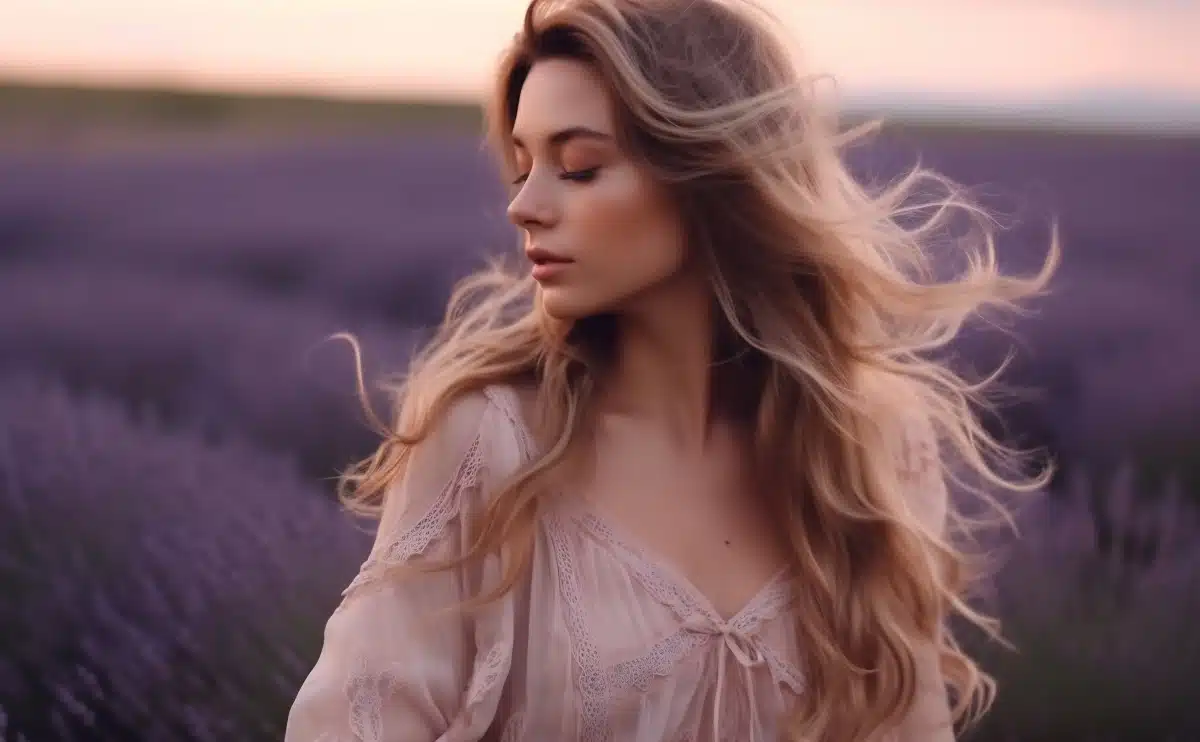
Heartrending Poems About Hurtful Love for Him
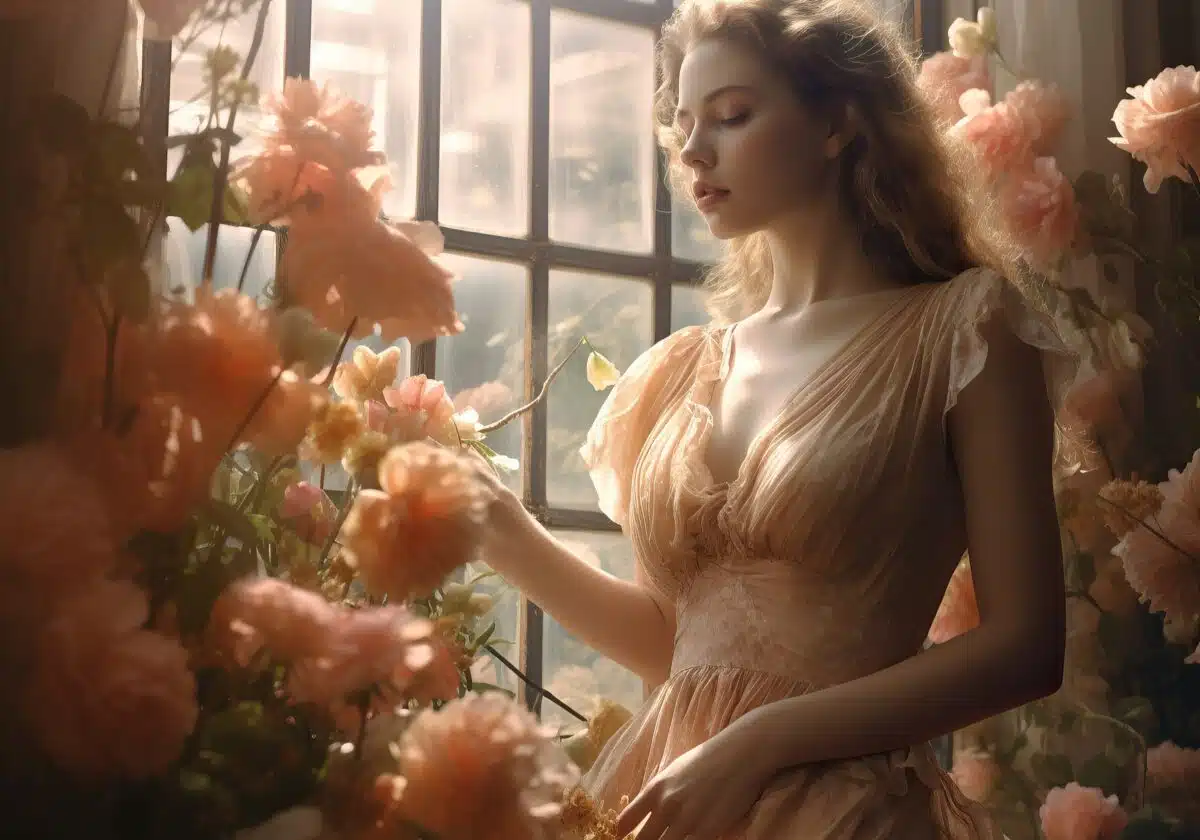
Love is a journey that often takes us to unexpected places, and sometimes those paths can be painful.
In the realm of poetry, few themes capture the essence of heartbreak and hurtful love quite like the poems dedicated to a cherished yet troublesome individual.
These verses delve into the depths of emotional turmoil, exploring the complexities of relationships gone awry.
Within these lines, you will find a collection of the most heartrending poems, carefully categorized to evoke empathy and understanding.
Whether you have experienced such hurtful love firsthand or simply seek solace in the written word, let these poems serve as a reminder that even in our darkest moments, there is beauty to be found in the rawness of human emotion.
Let’s get started!
My #1 Favorite Poem About Hurtful Love for Him

“The Blind God” by Madison Julius Cawein
I know not if she be unkind;
If she have faults, I do not care.
Search through the world — where will you find
A face like hers, a form, a mind?
I love her to despair!
If she be cruel, cruelty
Is a great virtue, I will swear:
If she be proud, then pride must be
Better than all humility.—
I love her to despair!
Why speak to me of that or this?
All you may say weighs not a hair!
To me, naught but perfection is
In her, whose lips I may not kiss!—
I love her to despair!
Why Is “The Blind God” My Favorite Poem About Hurtful Love for Him
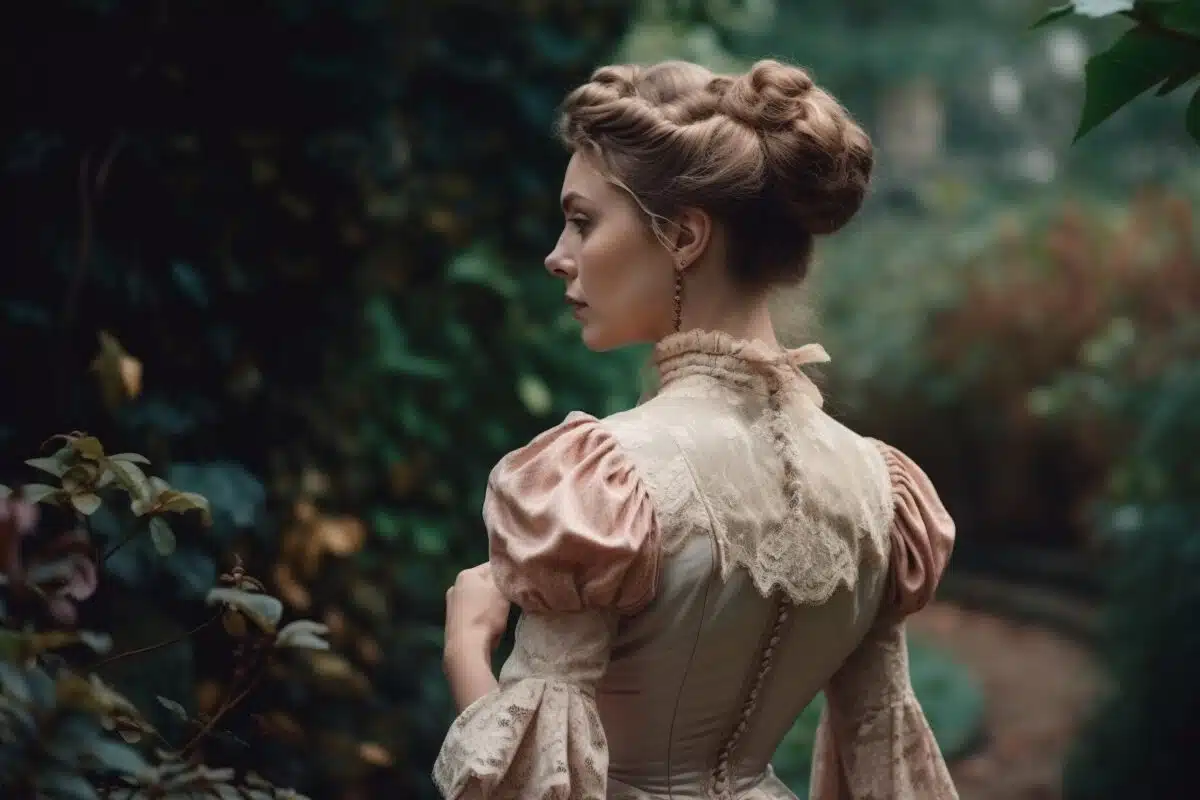
To me, “The Blind God” by Madison Julius Cawein is a desperate cry of a man helplessly in love with someone, whom he is willing to overlook her shortcomings.
The use of juxtapositions and the author’s sincere and honest descriptions of his beloved create an ethereal concept, allowing readers to experience the intense emotions of love and despair.
Despite being only three stanzas long, I admire how Cawein, as always, presents a tasteful narrative of a potentially unrequited love, evoking pain and heartbreak.
Ultimately, this poem leaves an indelible impression, reminding us of the mysteries of love that extend beyond mere sight.
Short Poems About Hurtful Love for Him
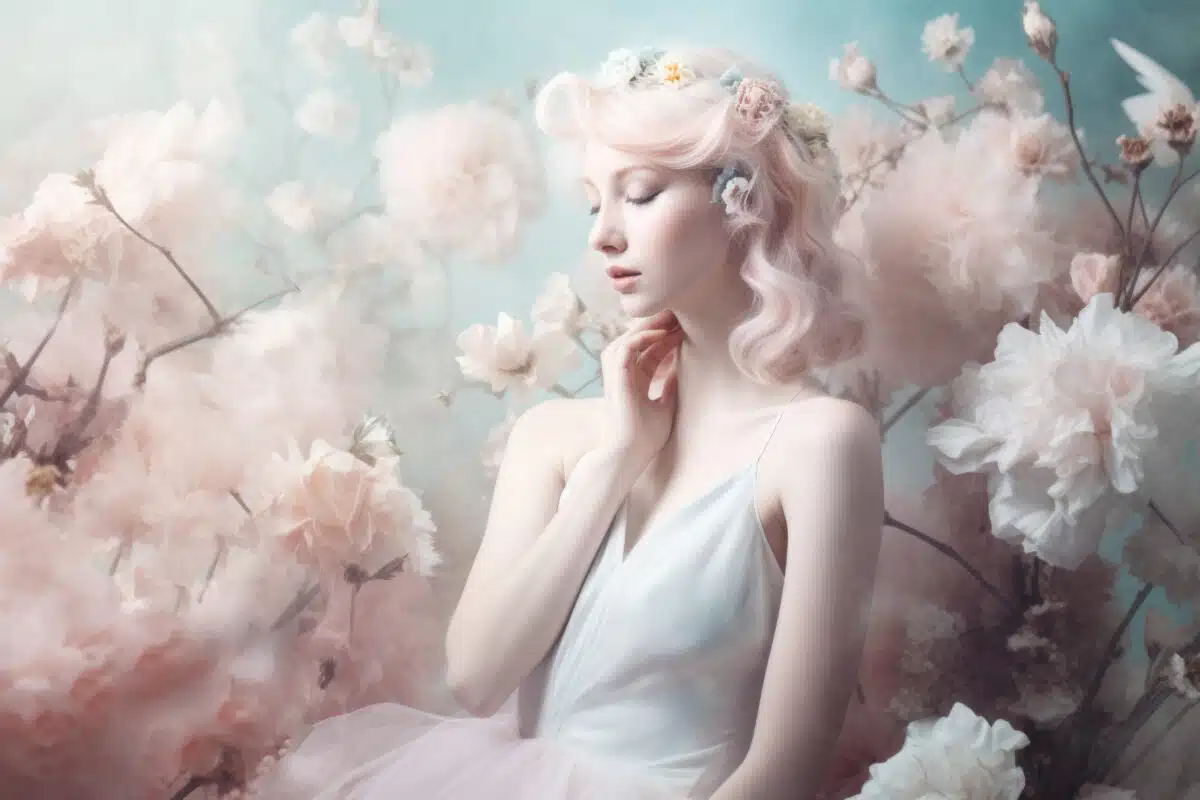
Love is a complex tapestry of emotions, and at times, it can be accompanied by profound pain.
In this category of short poems, we explore the bittersweet journey of hurtful love, encapsulating the raw emotions and experiences that come with loving someone who may have caused us pain.
“Indifference” by Madison Julius Cawein
She is so dear the wildflowers near
Each path she passes by,
Are over fain to kiss again
Her feet and then to die.
She is so fair the wild birds there
That sing upon the bough,
Have learned the staff of her sweet laugh,
And sing no other now.
Alas! that she should never see,
Should never care to know,
The wildflower’s love, the bird’s above,
And his, who loves her so.
“The Epochs” by Goethe (Edgar Alfred Bowring, Translator)
On Petrarch’s heart, all other days before,
In flaming letters written, was impress’d
GOOD FRIDAY. And on mine, be it confess’d,
Is this year’s ADVENT, as it passeth o’er.
I do not now begin, —I still adore
Her whom I early cherish’d in my breast,
Then once again with prudence dispossess’d,
And to whose heart I’m driven back once more.
The love of Petrarch, that all-glorious love,
Was unrequited, and, alas, full sad;
One long Good Friday ‘ twas, one heartache drear;
But may my mistress’ Advent ever provo,
With its palm-jubilee, so sweet and glad,
One endless Mayday, through the livelong year!
“Can I Forget” by Madison Julius Cawein
Can I forget how Love once led the ways
Of our two lives together, joining them;
How every hour was his anadem,
And every day a tablet in his praise!
Can I forget how, in his garden’s place,
Among the purple roses, stem to stem,
We heard the rumor of his robe’s bright hem,
And saw the aureate radiance of his face! —
Though I beheld my soul’s high dreams down hurled,
And Falsehood sit where Truth once towered white,
And in Love’s place usurping Lust and Shame,
Though flowers be dead within the winter world,
Are flowers not there? and starless though the night,
Are stars not there, eternal and the same?

“Farewell” by John Cave
Once more before we part, love,
We must meet in the dear old fashion,
I would kiss the arch of your pretty feet
With the purple kiss of passion.
I would hold the hand which wears the ring,
Which brings back memories olden ,
I would sing the songs we used to sing
When the evening lights were golden.
I would carry to lands beyond the sea
The scent of my own sweet rose,
And the touch of the lips that are dear to me
Shall be last on my lips to close.
“Query” by John Cave
How shall we meet, love, who can tell
With the same sweet trust as we bade farewell?
Those words that ring like a funeral knell.
Will you be tender, or cold, or coy,
Shall we both be shy like girl and boy,
Be pale with sorrows or dumb with joy?
Or shall we meet to find grey sadness
Has spread its cloud o’er summer’s gladness
And left but broken hearts, and madness?
How shall we meet, love, who can tell?—
If word be sadder than funeral knell,
That one sad word is the word Farewell.
“Tanka” by Sadakichi Hartmann
Though love has grown cold,
The woods are bright with flowers,
Why not, as of old
Come to the wildwood bowers
And dream of — bygone hours!

“Faith” by Frances Anne Kemble
Better trust all and be deceived,
And weep that trust and that deceiving,
Than doubt one heart that, if believed,
Had blessed one’s life with true believing.
O, in this mocking world too fast
The doubting fiend o’ertakes our youth;
Better be cheated to the last
Than lose the blessed hope of truth.
“Aware” by D. H. Lawrence
Slowly the moon is rising out of the ruddy haze,
Divesting herself of her golden shift, and so
Emerging white and exquisite; and I in amaze
See in the sky before me, a woman I did not know
I loved, but there she goes and her beauty hurts my heart;
I follow her down the night, begging her not to depart.
“Bring Her Again, O Western Wind” by William Ernest Henley
Bring her again, O western wind,
Over the western sea:
Gentle and good and fair and kind,
Bring her again to me!
Not that her fancy holds me dear,
Not that a hope may be:
Only that I may know her near,
Wind of the western sea.
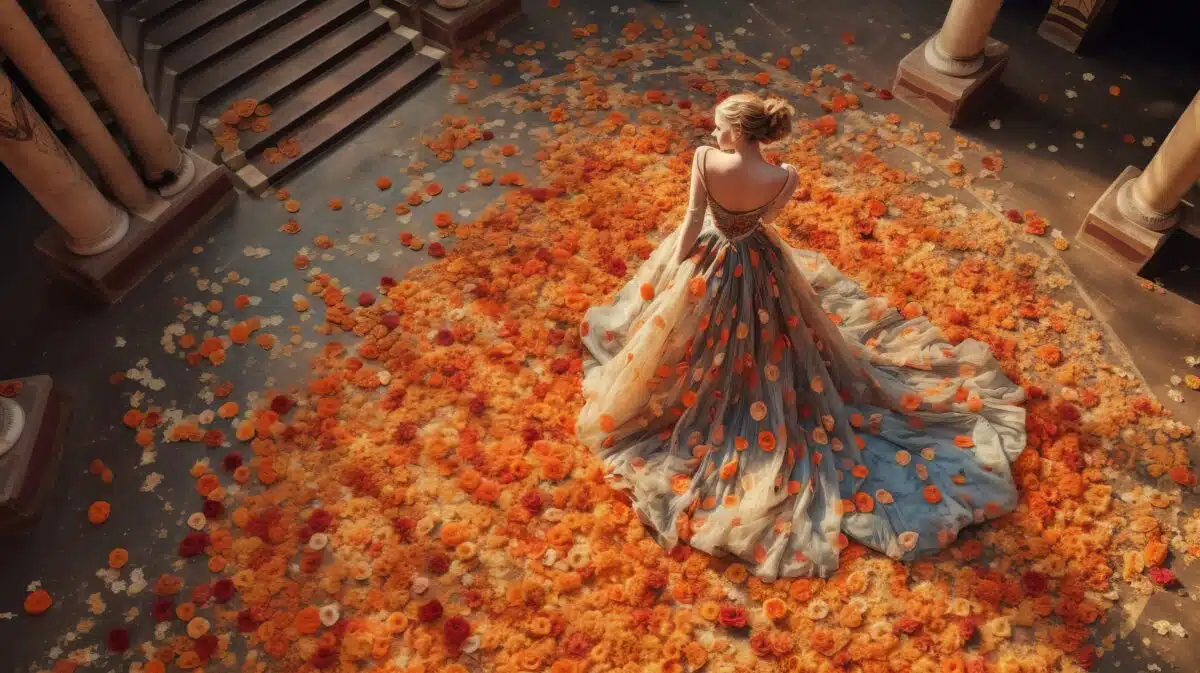
“We’ll Go No More A-roving” by William Ernest Henley
We’ll go no more a-roving by the light of the moon.
November glooms are barren beside the dusk of June.
The summer flowers are faded, the summer thoughts are sere.
We’ll go no more a-roving, lest worse befall, my dear.
We’ll go no more a-roving by the light of the moon.
The song we sang rings hollow, and heavy runs the tune.
Glad ways and words remembered would shame the wretched year.
We’ll go no more a-roving, nor dream we did, my dear.
We’ll go no more a-roving by the light of the moon.
If yet we walk together, we need not shun the noon.
No sweet thing left to savour, no sad thing left to fear,
We’ll go no more a-roving, but weep at home, my dear.
“Love Is A Madness” by Edgar Lee Masters
Love is a madness, love is a fevered dream,
A white soul lost in a field of scarlet flowers,
Love is a search for the lost, the ever vanishing gleam
Of wings, desires and sorrows and haunted hours.
Will the look return to your eyes, the warmth to your hand?
Love is a doubt, an ache, love is a writhing fear.
Love is a potion drunk when the ship puts out from land,
Rudderless, sails at full, and with none to steer.
The end is a shattered lamp, a drunken seraph asleep,
The upturned face of the drowned on a barren beach.
The glare of noon is o’er us, we are ashamed to weep,
The beginning and end of love are devoid of speech.
“You Will Not Come Again” by Dora Sigerson Shorter
The green has come to the leafless tree,
The earth brings forth its grain;
The flower has come for the honey bee:
You will not come again.
The birds have come to the empty nest,
All winter full of rain;
So music has come where the silence was:
You will not come again.
Love will come for the weak lambs’ cry;
Alas for my heart’s dull pain!
In the cycle of change I alone am lone:
You will not come again.
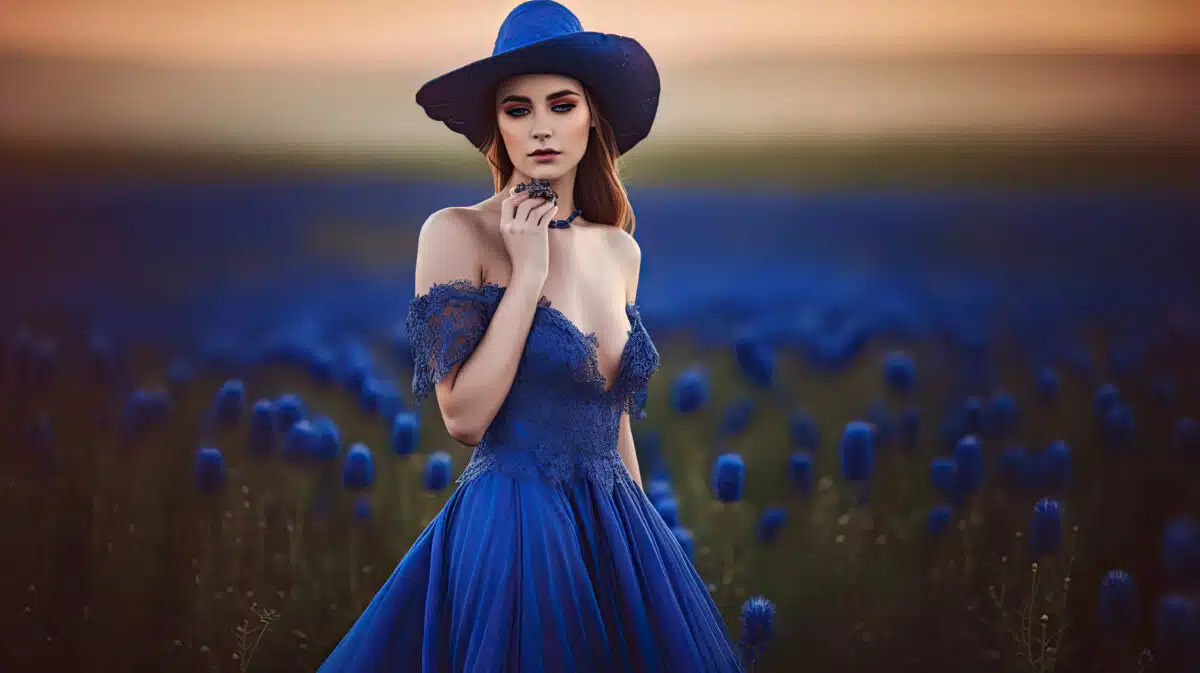
“Your Heart Has Trembled To My Tongue” by William Ernest Henley
Your heart has trembled to my tongue,
Your hands in mine have lain,
Your thought to me has leaned and clung,
Again and yet again,
My dear,
Again and yet again.
Now die the dream, or come the wife,
The past is not in vain,
For wholly as it was your life
Can never be again,
My dear,
Can never be again.
Deep Poems About Hurtful Love for Him
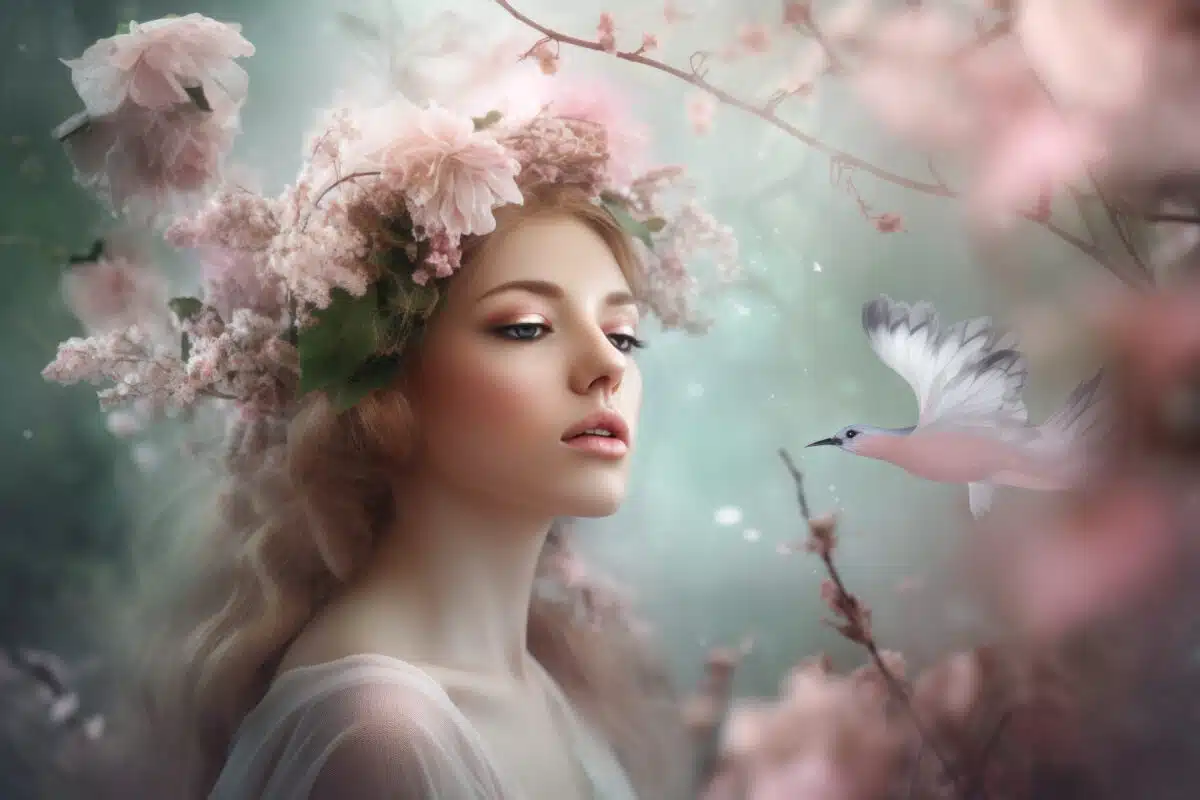
Immerse yourself into a collection of deep and heartfelt poems that explore the intricate emotions surrounding hurtful love for someone special.
Through the lyrical expressions and poignant verses, these poems delve into the complexities of love and the pain it can sometimes bring, offering solace and understanding to those who have experienced similar journeys.
“Lost Love” by Madison Julius Cawein
I loved her madly. For—so wrought
Young Love, divining Isles of Truth
Large in the central seas of Youth—
“Love will win love,” I thought.
Once when I brought a rare wild pink
To place among her plants, the wise,
Soft lifting of her speaking eyes
Said more than thanks, I think. . . .
She loved another.—Yes, I know
All would say of woman. You,
Like other men, would comfort too. . . .
But then I loved her so.
She loved another.—Ah! too well
I know the story of her soul!—
A weary tale the weary whole
Of how she loved and fell.
I loved her so! … Remembering now
My mad grief then, I wonder why
Grief never kills. . . I could not
die.I loved her so!
My mad grief then, I wonder why
Grief never kills. . . . I could not die.—
She died— know not how.
Strange, is it not ? For she was dear
To me as life once.—A regret
She is now; just to make eyes wet
And bring a fullness here.
Yet, had she lived as dead in shame
As now in death, Love would have used
Pride’s pitying pencil and abused
The memory of her name.
This helps me thank my God, who led
My broken life in sunlight of
This pure affection, that my love
Lives through her being dead.
“The Bliss Of Absence” by Goethe (Edgar Alfred Bowring, Translator)
Drink, oh youth, joy’s purest ray
From thy loved one’s eyes all day,
And her image paint at night!
Better rule no lover knows,
Yet true rapture greater grows,
When far sever’d from her sight.
Powers eternal, distance, time,
Like the might of stars sublime,
Gently rock the blood to rest.
O’er my senses softness steals,
Yet my bosom lighter feels,
And I daily am more blest.
Though I can forget her ne’er,
Yet my mind is free from care,
I can calmly live and move;
Unperceived infatuation
Longing turns to adoration,
Turns to reverence my love.
Ne’er can cloud, however light,
Float in ether’s regions bright,
When drawn upwards by the sun,
As my heart in rapturous calm.
Free from envy and alarm,
Ever love I her alone!
“Unrequited” by Madison Julius Cawein
Passion? not hers! who held me with pure eyes:
One hand among the deep curls of her brow,
I drank the girlhood of her gaze with sighs:
She never sighed, nor gave me kiss or vow.
So have I seen a clear October pool,
Cold, liquid topaz, set within the sere
Gold of the woodland, tremorless and cool,
Reflecting all the heartbreak of the year.
Sweetheart? not she! whose voice was music sweet;
Whose face was sweeter than melodious prayer.
Sweetheart I called her. When did she repeat
Sweet to one hope, or heart to one despair!
So have I seen a wildflower’s fragrant head
Sung to and sung to by a longing bird,
And at the last, albeit the bird lay dead,
No blossom wilted, for it had not heard.
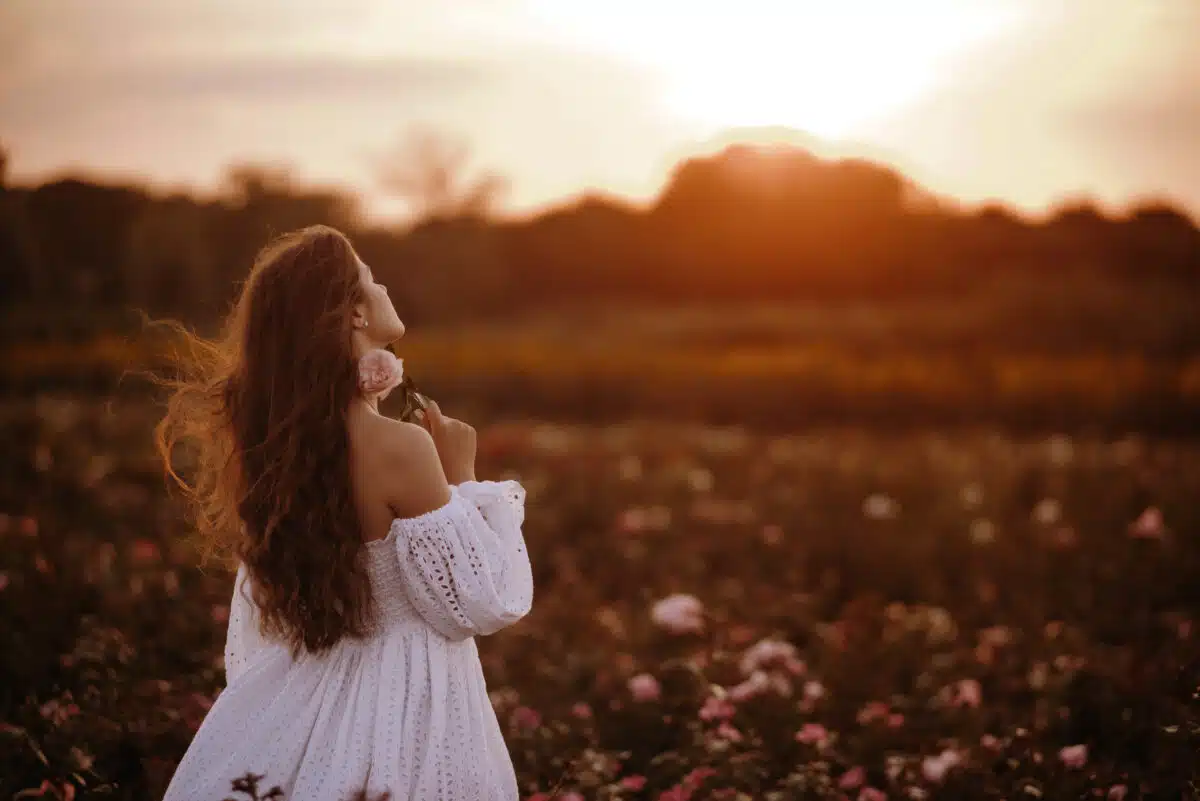
“Love’s Distresses” by Goethe (Edgar Alfred Bowring, Translator)
Who will hear me? Whom shall I lament to?
Who would pity me that heard my sorrows?
Ah, the lip that erst so many raptures
Used to taste, and used to give responsive,
Now is cloven, and it pains me sorely;
And it is not thus severely wounded
By my mistress having caught me fiercely,
And then gently bitten me, intending
To secure her friend more firmly to her:
No, my tender lip is crack’d thus, only
By the winds, o’er rime and frost proceeding,
Pointed, sharp, unloving, having met me.
Now the noble grape’s bright juice commingled
With the bee’s sweet juice, upon the fire
Of my hearth, shall ease me of my torment.
Ah, what use will all this be, if with it
Love adds not a drop of his own balsam?
“Her Violin” by Madison Julius Cawein
I
Her violin! – Again begin
The dream-notes of her violin;
And tall and fair, with gold-brown hair,
I seem to see her standing there,
Soft-eyed and sweetly slender:
The room again, with strain on strain,
Vibrates to Love’s melodious pain,
As, sloping slow, is poised her bow,
While round her form the golden glow
Of sunset spills its splendor.
II
Her violin! Now deep, now thin,
Again I hear her violin;
And, dream by dream, again I seem
To see the love-light’s tender gleam
Beneath her eyes’ long lashes:
While to my heart she seems a part
Of her pure song’s inspired art;
And, as she plays, the rosy grays
Of twilight halo hair and face,
While sunset burns to ashes.
III
O violin! – Cease, cease within
My soul, O haunting violin!
In vain, in vain, you bring again,
Back from the past, the blissful pain
Of all the love then spoken;
When on my breast, at happy rest,
A sunny while her head was pressed –
Peace, peace to these wild memories!
For, like my heart naught remedies,
Her violin lies broken.
“Parted” by John Cave
Dear Love, whose never-failing power
Makes sunshine of each weary hour,
And tinges every thought of mine
With something sacred and Divine,
Till even in this lonely place
I hear your voice and see your face.
Oh! think of me when you are sad,
And let that memory make you glad;
For every thought that stirs your breast
Is also by my own possessed.
And every fear that chills me through
Falls vanquished when I think of you.
The very breath of wandering air
That touches me, may stir your hair,
And carry from this lonely sea
A loving kiss to you-from me!
The storm that beats your window-pane
Has my tears mingled with its rain:
Then turn to me, my own love, turn,
Till fancy’s kisses melt and burn,
And that sweet heart you gave to me
Is thrilled with nameless ecstasy;
The heart you gave that I should own
Your whole soul’s love was mine alone.

“Bei Hennef” by D. H. Lawrence
The little river twittering in the twilight,
The wan, wondering look of the pale sky,
This is almost bliss.
And everything shut up and gone to sleep,
All the troubles and anxieties and pain
Gone under the twilight.
Only the twilight now, and the soft “Sh!” of the river
That will last for ever.
And at last I know my love for you is here,
I can see it all, it is whole like the twilight,
It is large, so large, I could not see it before
Because of the little lights and flickers and interruptions,
Troubles, anxieties and pains.
You are the call and I am the answer,
You are the wish, and I the fulfilment,
You are the night, and I the day.
What else—it is perfect enough,
It is perfectly complete,
You and I,
What more——?
Strange, how we suffer in spite of this!
“In May” by Madison Julius Cawein
I
When you and I in the hills went Maying,
You and I in the bright May weather,
The birds, that sang on the boughs together,
There in the green of the woods, kept saying
All that my heart was saying low,
“I love you! love you! ” soft and low; –
And did you know?
When you and I in the hills went Maying.
II
There where the brook on its rocks went winking,
There by its banks where the May had led us,
Flowers, that bloomed in the woods and meadows,
Azure and gold at our feet, kept thinking
All that my soul was thinking there,
“I love you! love you!” softly there; –
And did you care?
There where the brook on its rocks went winking.
III
Whatever befalls through fate’s compelling,
Should our paths unite or our pathways sever,
In the Mays to-come I shall feel forever
The wildflowers thinking, the wild-birds telling,
In words as soft as the falling dew,
The love that I keep here still for you,
As deep and true,
Whatever befalls through fate’s compelling.
“Drifting Apart” by John Cave
Strange! we should dream, you and I, of drifting apart,
You with the passionate soul, I with the deep, strong heart,
We who have lain breast to breast till the night grew deep,
And kissed till we slumbered, and woke with that kiss from sleep.
Wedded here for life, and the life that comes after this,
We-who created life anew by a living kiss
We-husband and wife-by the law of God and man,
And yet are drifting apart as only the ship wrecked can.
Did the serpent take from Eve as never-ending toll
That each woman should give to man a part of her soul,
And the rest should be torn between the devil and God,
Till she sinks like atrampled rose leaf into the sod,
And only dead wreaths lie where pattering rain drops fall.
Love, like the world, is blind, and waits for the trumpet’s call.
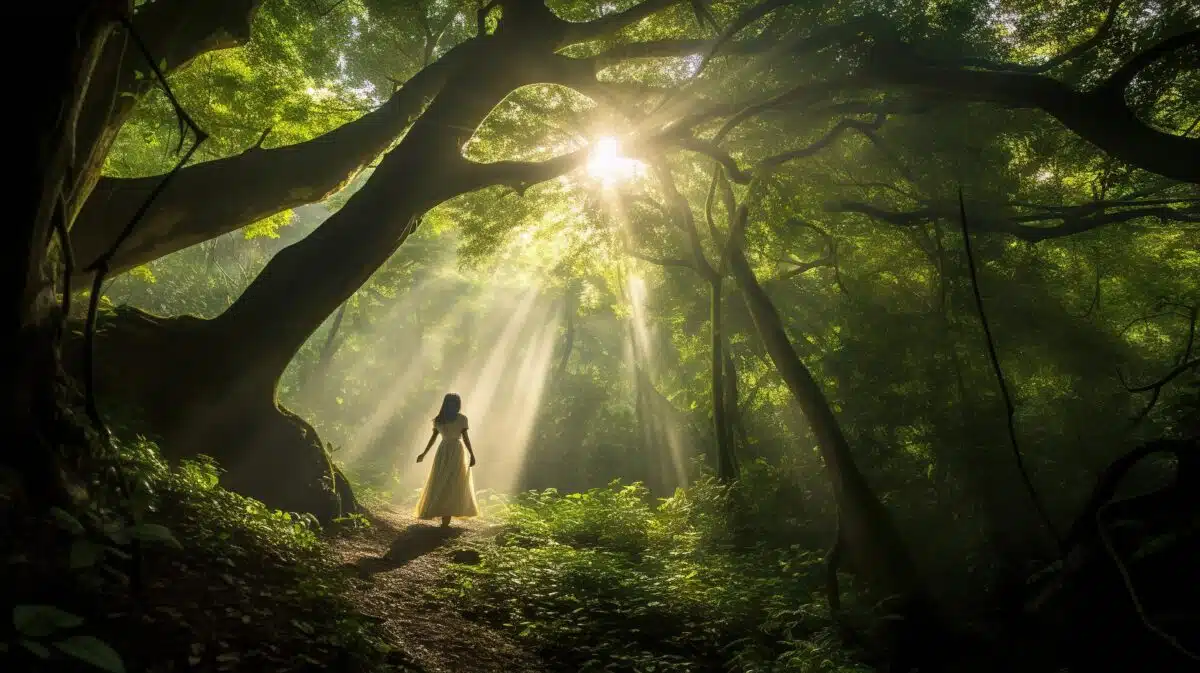
“Evasion” by Madison Julius Cawein
I
Why do I love you, who have never given
My heart encouragement or any cause?
Is it because, as earth is held of heaven,
Your soul holds mine by some mysterious laws?
Perhaps, unseen of me, within your eyes
The answer lies.
II
From your sweet lips no word hath ever fallen
To tell my heart its love is not in vain
The bee that woos the flow’r hath honey and pollen
To cheer him on and bring him back again:
But what have I, your other friends above,
To feed my love?
III
Still, still you are my dream and my desire ;
Your love is an allurement and a dare
Set for attainment, like a shining spire,
Far, far above me in the starry air:
And gazing upward, ‘ gainst the hope of hope,
I breast the slope.
“I Gave My Heart To A Woman” by William Ernest Henley
I gave my heart to a woman—
I gave it her, branch and root.
She bruised, she wrung, she tortured,
She cast it under foot.
Under her feet she cast it,
She trampled it where it fell,
She broke it all to pieces,
And each was a clot of hell.
There in the rain and the sunshine
They lay and smouldered long;
And each, when again she viewed them,
Had turned to a living song.
“To Her” by Heinrich Heine (Edgar Alfred Bowring, Translator)
The flow’rets red and white that I hold here,
Which blossom’d erst from out the heart’s deep wound,
Into a lovely nosegay I have bound,
And offer unto thee, my mistress dear.
By its acceptance be thy bard’s love crown’d!
I cannot from this earth’s scene disappear,
Till I have left a sign of love sincere.
Remember me when I my death have found.
Yet ne’er, O mistress, shalt thou pity me;
My life of grief was enviable e’en,—
For in my heart I bore thee lovingly.
And greater bliss shall soon be mine, when I
Shall, as thy guardian spirit, watch unseen,
Thy heart with peaceful greetings satisfy.
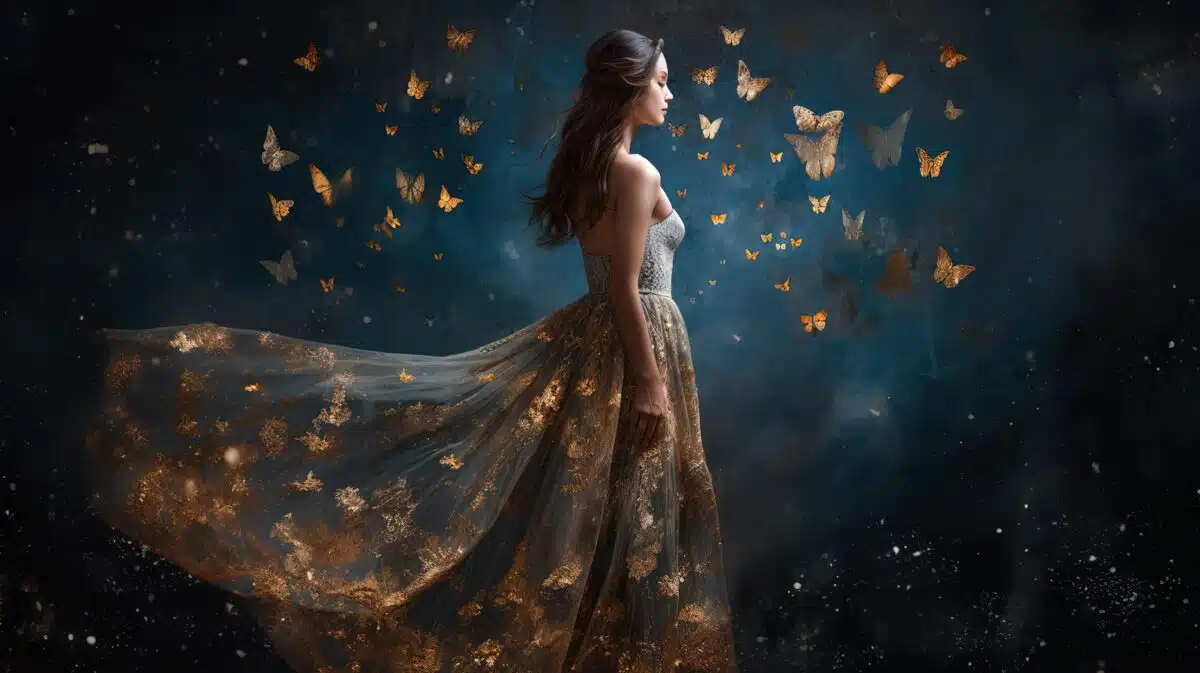
“Desolation” by Ella Wheeler Wilcox
I think that the bitterest sorrow or pain
Of love unrequited, or cold death’s woe,
Is sweet compared to that hour when we know
That some grand passion is on the wane;
When we see that the glory and glow and grace
Which lent a splendor to night and day
Are surely fading, and showing the gray
And dull groundwork of the commonplace;
When fond expressions on dull ears fall,
When the hands clasp calmly without one thrill,
When we cannot muster by force of will
The old emotions that came at call;
When the dream has vanished we fain would keep,
When the heart, like a watch, runs out of gear,
And all the savor goes out of the year,
Oh, then is the time—if we can—to weep!
But no tears soften this dull, pale woe;
We must sit and face it with dry, sad eyes.
If we seek to hold it, the swifter joy flies—
We can only be passive, and let it go.
“Time And Love” by Ella Wheeler Wilcox
Time flies. The swift hours hurry by
And speed us on to untried ways;
New seasons ripen, perish, die,
And yet love stays.
The old, old love—like sweet, at first,
At last like bitter wine—
I know not if it blest or curst
Thy life and mine.
Time flies. In vain our prayers, our tears!
We cannot tempt him to delays;
Down to the past he bears the years,
And yet love stays.
Through changing task and varying dream
We hear the same refrain,
As one can hear a plaintive theme
Run through each strain.
Time flies. He steals our pulsing youth;
He robs us of our care-free days;
He takes away our trust and truth:
And yet love stays.
O Time! take love! When love is vain,
When all its best joys die—
When only its regrets remain—
Let love, too, fly.
Sad Love Poems About a Broken Heart for Him
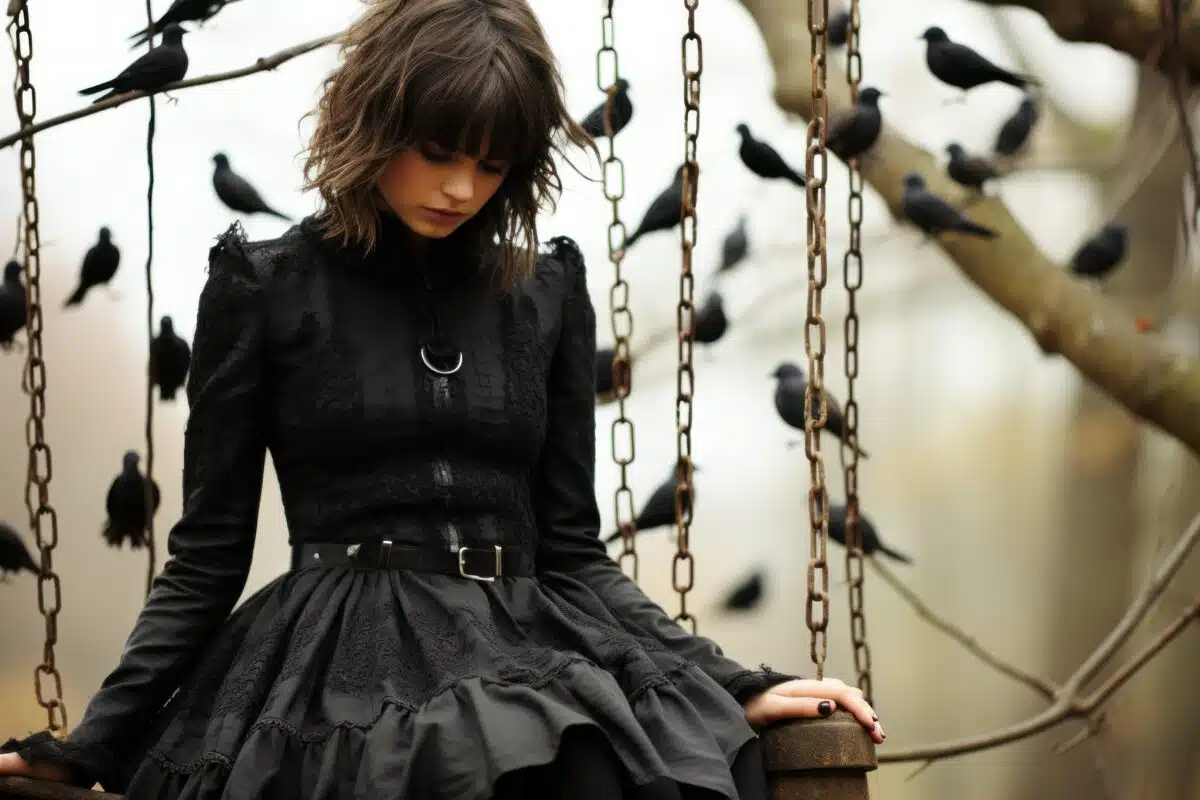
In the realm of emotions, few experiences are as poignant and universal as a broken heart.
Here are sad love poems crafted specifically for him, encapsulating the raw pain, longing, and vulnerability that arises from a shattered romance.
“Finale” by Madison Julius Cawein
So let it be. Thou dare not say ‘t was I!
Here in life’s temple, where thy soul can see,
Look where the beauty of our love doth lie,
Shattered in shards, a dead divinity! —
Approach: kneel down: yea, render up one sigh!
This is the end. What need to tell it thee!
So let it be.
So let it be. Care, who hath stood with him,
And sorrow, who sat by him deified,
For whom his face made comfort,—lo! how dim
They heap his altar which they can not hide,
While memory’s lamp swings o’er it, burning slim.—
This is the end. What shall be said beside?
So let it be.
So let it be. Did we not drain the wine,
Red, of love’s sacramental chalice, when
He laid sweet sanction on thy lips and mine?
Dash it aside! Lo, who will fill again
Now it is empty of the god divine!—
This is the end. Yea, let us say Amen.
So let it be.
“Blighted Love” by Luís de Camões (Lord Strangford, Translator)
Flowers are fresh, and bushes green,
Cheerily the linnets sing;
Winds are soft, and skies serene;
Time, however, soon shall throw
Winter’s snow
O’er the buxom breast of Spring!
Hope, that buds in lover’s heart,
Lives not through the scorn of years;
Time makes love itself depart;
Time and scorn congeal the mind,—
Looks unkind
Freeze affection’s warmest tears.
Time shall make the bushes green;
Time dissolve the winter snow;
Winds be soft, and skies serene;
Linnets sing their wonted strain:
But again
Blighted love shall never blow!
“Out Of The Depths” by Madison Julius Cawein
I
Let me forget her face!
So fresh, so lovely! the abiding place
Of tears and smiles that won my heart to her;
Of dreams and moods that moved my soul’s dim deeps,
As strong winds stir
Dark waters where the starlight glimmering sleeps.―
In every lineament the mind can trace,
Let me forget her face!
II
Let me forget her form!
Soft and seductive, that contained each charm,
Each grace the sweet word maidenhood implies;
And all the sensuous youth of line and curve,
That makes men’s eyes
Bondsmen of beauty, eager still to serve.
In every part that memory can warm,
Let me forget her form!
III
Let me forget her, God!
Her who made honeyed love a bitter rod
To scourge my heart with, barren with despair;
To tear my soul with, sick with vain desire!
Oh, hear my prayer!
Out of the hell of love’s unquenchable fire
I cry to thee, with face against the sod,
Let me forget her, God!

“New Love, New Life” by Goethe (Edgar Alfred Bowring, Translator)
Heart! my heart ! what means this feeling?
What oppresseth thee so sore?
What strange life is o’er me stealing!
I acknowledge thee no more.
Fled is all that gave thee gladness,
Fled the cause of all thy sadness,
Fled thy peace, thine industry
Ah, why suffer it to be?
Say, do beauty’s graces youthful,
Does this form so fair and bright,
Does this gaze, so kind, so truthful,
Chain thee with unceasing might?
Would I tear me from her boldly,
Courage take, and fly her coldly,
Back to her I’m forthwith led
By the path I seek to tread.
By a thread I ne’er can sever,
For ’tis ‘twined with magic skill,
Doth the cruel maid for ever
Hold me fast against my will
While those magic chains confine me,
To her will I must resign me.
Ah, the change in truth is great!
Love! kind love! release me straight!
“Long Ago” by John Cave
Have you forgotten the dear old days
Long, long ago?
When we used to walk in the pleasantways
Long, long ago?
Have you forgotten the vows we made
Long, long ago?
Under the lime-trees’ dappled shade
Long, long ago?
Have you forgotten the kiss you gave
Long, long ago?
When you were mine, and I your slave
Long, long ago?
You have forgotten, and I would forget
That long ago,
For the waves are dark and the stars are set,
And life has left but vain regret
For long ago.
“Will You Forget?” by Madison Julius Cawein
In years to come, will you forget,
Dear girl, how often we have met?
And I have gazed into your eyes
And there beheld no sad regret
To cloud the gladness of their skies,
While in your heart unheard as yet –
Love slept, oblivious of my sighs?-
In years to come, will you forget?
Ah, me! I only pray that when,
In other days, some man of men
Has taught those eyes to laugh and weep
With joy and sorrow, hearts must ken
When love awakens in their deep,
I only pray some memory then,
Or sad or sweet, you still will keep
Of me and love that might have been.
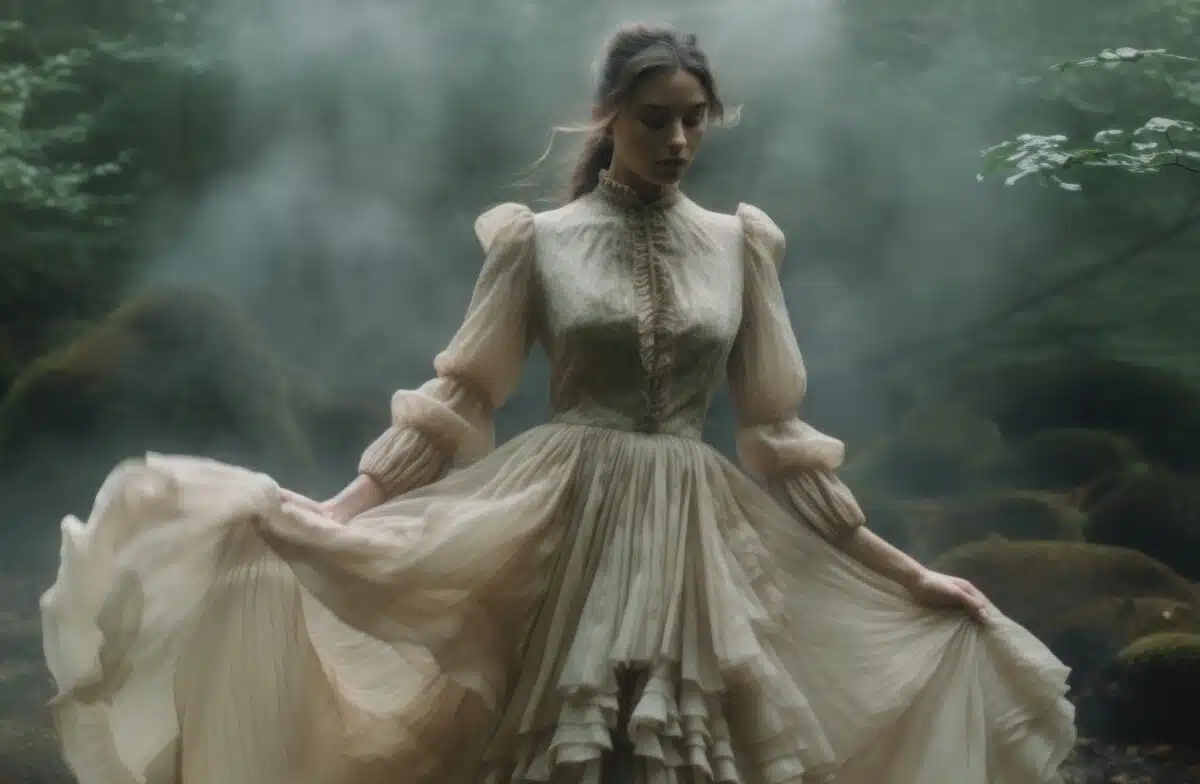
“Dead Love” by John Cave
So Love is dead; you have killed him at
last, and he lies
Looking up with no changing light in
his fix’d blue eyes;
There is no scar on his breast, like scars swords
give in fight,
But the pallid purple shade that follows a
withdrawn light.
So, lady, Love is dead, the Love you swore to
keep,
Not alone in this world, but beyond in the world
of sleep.
You dare not kill it outright, lest remorse your
self should kill,
So asked, at the hypocrite’s door, for a draught
from his poisoned still,
And mix’d the deadly draught with drops of the
old sweet wine,
The poison that made Love sick, and swoon, and
die o’ decline.
Then you stript him, piece by piece, of the
delicate robes he wore,
Till he lay like a naked corpse cast on the dead
cold shore.
I leave the body to you, who cared for the body
most;
The thing you kiss’d and kill’d : but you cannot
kill Love’s ghost.
“Farewell—But Whenever” by Thomas Moore
Farewell!—but whenever you welcome the hour
That awakens the night-song of mirth in your bower,
Then think of the friend that once welcomed it too,
And forgot his own griefs, to be happy with you.
His griefs may return—not a hope may remain
Of the few that have brightened his pathway of pain—
But he ne’er can forget the short vision that threw
Its enchantment around him while lingering with you!
And still on that evening when Pleasure fills up
To the highest top sparkle each heart and each cup,
Where’er my path lies, be it gloomy or bright,
My soul, happy friends! will be with you that night;
Shall join in your revels, your sports, and your wiles,
And return to me, beaming all o’er with your smiles—
Too blest if it tell me that, ’mid the gay cheer,
Some kind voice has murmured, “I wish he were here!”
Let Fate do her worst, there are relics of joy,
Bright dreams of the past, which she cannot destroy;
Which come in the night-time of sorrow and care,
And bring back the features which joy used to wear.
Long, long be my heart with such memories filled!
Like the vase in which roses have once been distilled—
You may break, you may shatter the vase, if you will,
But the scent of the roses will hang round it still.
“The Past Was Goodly Once” by William Ernest Henley
The Past was goodly once, and yet, when all is said,
The best of it we know is that it’s done and dead.
Dwindled and faded quite, perished beyond recall,
Nothing is left at last of what one time was all.
Coming back like a ghost, staring and lingering on,
Never a word it speaks but proves it dead and gone.
Duty and work and joy—these things it cannot give;
And the Present is life, and life is good to live.
Let it lie where it fell, far from the living sun,
The Past that, goodly once, is gone and dead and done.
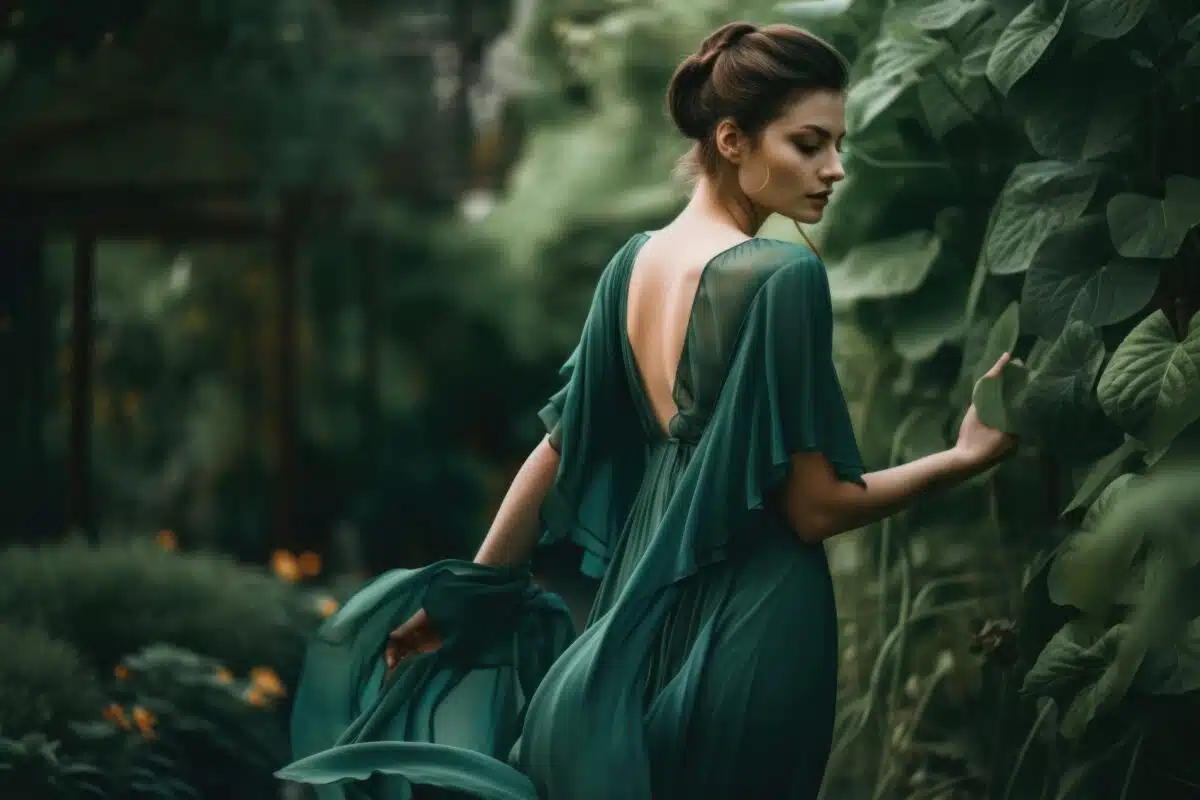
“Love Despised” by Madison Julius Cawein
Can one resolve and hunt it from one’s heart?
This love, this god and fiend, that makes a hell
Of many a life, in ways no tongue can tell,
No mind divine, nor any word impart.
Would not one think the slights that make hearts smart,
The ice of love’s disdain, the wint’ry well
Of love’s disfavor, love’s own fire would quell?
Or school its nature, too, to its own art
Why will men cringe and cry forever here
For that which, once obtained, may prove a curse?
Why not remember that, however fair,
Decay is wed to Beauty? That each year
Takes somewhat from the riches of her purse,
Until at last her house of pride stands bare?
“The Farewell” by Johann Wolfgang von Goethe
Let mine eye the farewell say,
That my lips can utter ne’er;
Fain I’d be a man to-day,
Yet ’tis hard, oh, hard to bear!
Mournful in an hour like this
Is love’s sweetest pledge, I ween;
Cold upon thy mouth the kiss,
Faint thy fingers’ pressure e’en.
Oh what rapture to my heart
Used each stolen kiss to bring!
As the violets joy impart,
Gather’d in the early spring.
Now no garlands I entwine,
Now no roses pluck for thee,
Though ’tis springtime, Fanny mine,
Dreary autumn ’tis to me!
Sad Love Poems That Make You Cry for Him
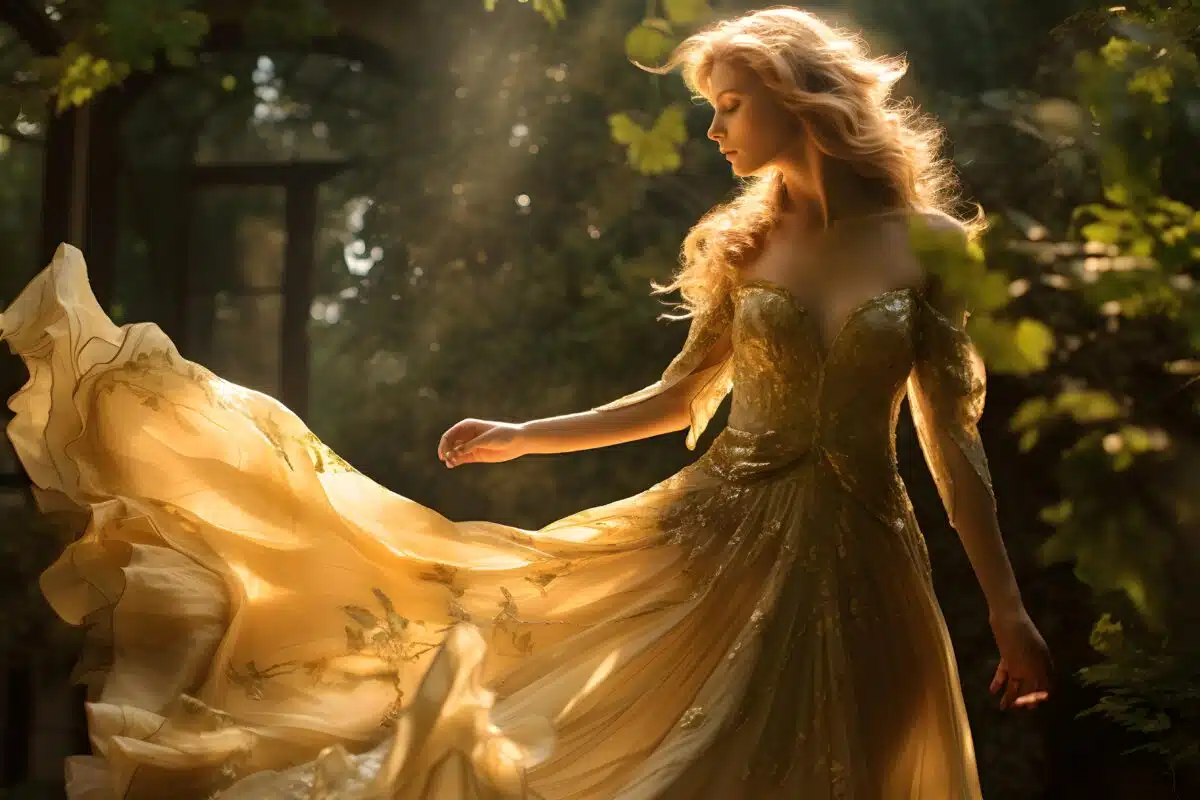
Love has a profound ability to touch our hearts, sometimes leaving us in tears with bittersweet emotions.
Let’s dive into this collection of sad love poems, which explores the depths of longing, heartbreak, and the raw vulnerability that comes when we yearn for someone who is no longer by our side.
“Witnesses” by Madison Julius Cawein
I
You say I do not love you! — Tell me why,
When I have gazed a little on your face,
And then gone forth into the world of men,
A beauty, neither of the earth nor sky,
A glamour, that transforms each common place,
Attends my spirit then?
II
You say I do not love you! — Yet, I know,
When I have heard you speak and dwelt upon
Your words a while, my heart has gone away
Filled with strange music, very soft and low,
A dim companion, touching with sweet tone
The discords of the day.
III
You say I do not love you! — Yet, it seems,
When I have kissed your hand and said farewell,
A fragrance, wilder than the wood’s wild bloom,
Companions dim my soul and fills, with dreams,
The sad and sordid streets where people dwell,
Dreams of spring’s wild perfume.
“The Loving One Once More” by Goethe (Edgar Alfred Bowring, Translator)
Why do I o’er my paper once more bend?
Ask not too closely, dearest one, I pray:
For, to speak truth, I’ve nothing now to say;
Yet to thy hands at length ‘ twill come, dear friend.
Since I can come not with it, what I send
My undivided heart shall now convey,
With all its joys, hopes, pleasures, pains, to-day:
All this hath no beginning, hath no end.
Henceforward I may ne’er to thee confide
How, far as thought, wish, fancy, will, can reach,
My faithful heart with thine is surely blended.
Thus stood I once enraptured by thy side,
Gazed on thee, and said nought. What need of speech?
My very being in itself was ended.
“This Is The Face Of Her” by Madison Julius Cawein
This is the face of her
I’ve dreamed of long
That in my heart I bear:
This is the face of her
Pictured in song.
Look on the lily lids,
The eyes of dawn,
Deep as a Nereid’s,
Swimming with dewy lids
In waters wan.
Look on the brows of snow,
The locks of night:
Only the gods can show
Such brows of placid snow,
Such locks of light.
The cheeks, like rosy moons;
The lips of fire:
Love sighs no sweeter tunes
Under romantic moons
Than these suspire.
Loved lips and eyes and hair!
Look, this is she!
She, who sits smiling there,
Throned in my heart’s despair,
Never for me!
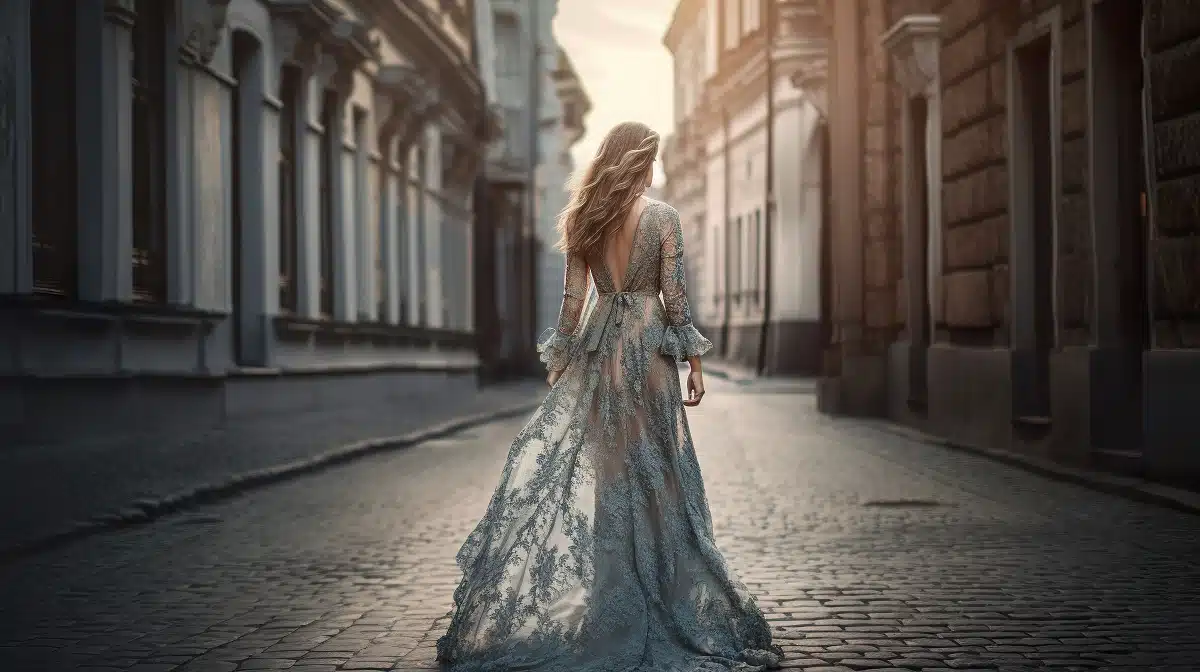
From “Song of the Imprisoned Count” by Goethe (Edgar Alfred Bowring, Translator)
The violet’s charms I prize indeed,
So modest ’tis, and fair,
And smells so sweet; yet more I need
To ease my heavy care.
The truth I’ll whisper in thine ear:
Upon these rocky heights so drear,
I cannot find the loved one.
The truest maiden ‘neath the sky
Roams near the stream below,
And breathes forth many a gentle sigh,
Till I from hence can go.
And when she plucks a flow’ret blue,
And says “Forget-me-not!”—I, too,
Though far away, can feel it.
Ay, distance only swells love’s might,
When fondly love a pair;
Though prison’d in the dungeon’s night,
In life I linger there;
And when my heart is breaking nigh,
“Forget-me-not!” is all I cry,
And straightway life returneth.
“After Love” by Madison Julius Cawein
At moonset, when ghost speaks with ghost
And spirits meet where once they sinned,
Between the whispering wood and coast,
My soul met her soul on the wind,
My late-lost Evalind.
I kissed her mouth. Her face was wild.
Two burning shadows were her eyes,
Wherein the love, -that once had smiled
A heartbreak smile,-in some strange wise,
I did not recognize.
Then suddenly I seemed to see
How sin had damned my soul and doomed
To wander thus eternally
With love and loathing, that assumed
The form of her entombed.
“Solitude” by John Cave
Darling! the very thoughts of thee
Are tinged with twilight’s sadness.
It was your voice that gave the sea
Its wild sweet note of gladness.
And all the waves cry out in pain,
And all the deep is raving,
For till I find your arms again,
My heart is mad with craving.
Darling! it was your presence drew
Sweet scent from all the roses,
But now I search the garden through,
And every blossom closes.
And nothing but the dead leaves lie,
On sodden paths now haunted,
Where once your fairy feet would fly
To meet my hands undaunted.
Darling! the couch where once we kissed
Before the flames bright flashes,
And love surrendered what it list
Is cold-the hearth is ashes.
Come back to me, and with thy breath
The slumbering embers fan,
Revive the roses from their death
As only you, Love, can.

“Memories” by Madison Julius Cawein
Here where Love lies perished,
Look not in upon the dead,
Lest the shadowy curtains, shaken
In my Heart’s dark chamber, waken
Ghosts, beneath whose garb of sorrow
Whilom gladness bows his head:
When you come at morn, to- morrow,
Look not in upon the dead,
Here where Love lies perished.
Here where Love lies cold interred,
Let no syllable be heard,
Lest the hollow echoes, housing
In my Soul’s deep tomb, arousing
Wake a voice of woe, once laughter
Claimed and clothed in joy’s own word:
When you come at dusk, or after,
Let no syllable be heard,
Here where Love lies cold interred.
From “After Love” by George Henry Roqué Dabbs
The summer is gone with the spring-time,
The autumn is losing the sun,
The winter, unclasped from the future,
Creeps up the horizon so dun;
And we, in the dark desert gloaming,
Are stretching our hands to the dead,
With the passionate clutch ofthe drowning,
For the life and the love that are fled.
Oh, sore is that life of the lonely!
And sorer that love that is lone!
And the desolate fever and heartache,
No sleep of this earth can disown;
For the mazes of dreamland are haunted
With visible forms of the dust,
Grown warm in the pulse of their ashes,
Grown fleet from their cradle of rust!
“At Parting” by Madison Julius Cawein
What is there left for us to say,
Now it is time to speak good-by?
And all our dreams of yesterday
Are one with yester-evening’s sky –
What is there left for us to say,
Now different ways before us lie?
A word of hope, a word of cheer,
A word of love, whose help shall last,
When we are far to bring us near
Through memories of the happy past;
A word of hope, a word of cheer,
To keep our young hearts true and fast.
What is there left for us to do,
Now it is time to say farewell?
And care, that bade us once adieu,
Returns again with us to dwell
What is there left for us to do,
Now different ways our fates compel?
Clasp hands and kiss, touch lips and smile,
And look the love that shall remain —
When severed so by many a mile
The sweetest balm for bitterest pain:
Clasp hands and kiss, touch lips and smile,
And trust to God to meet again.
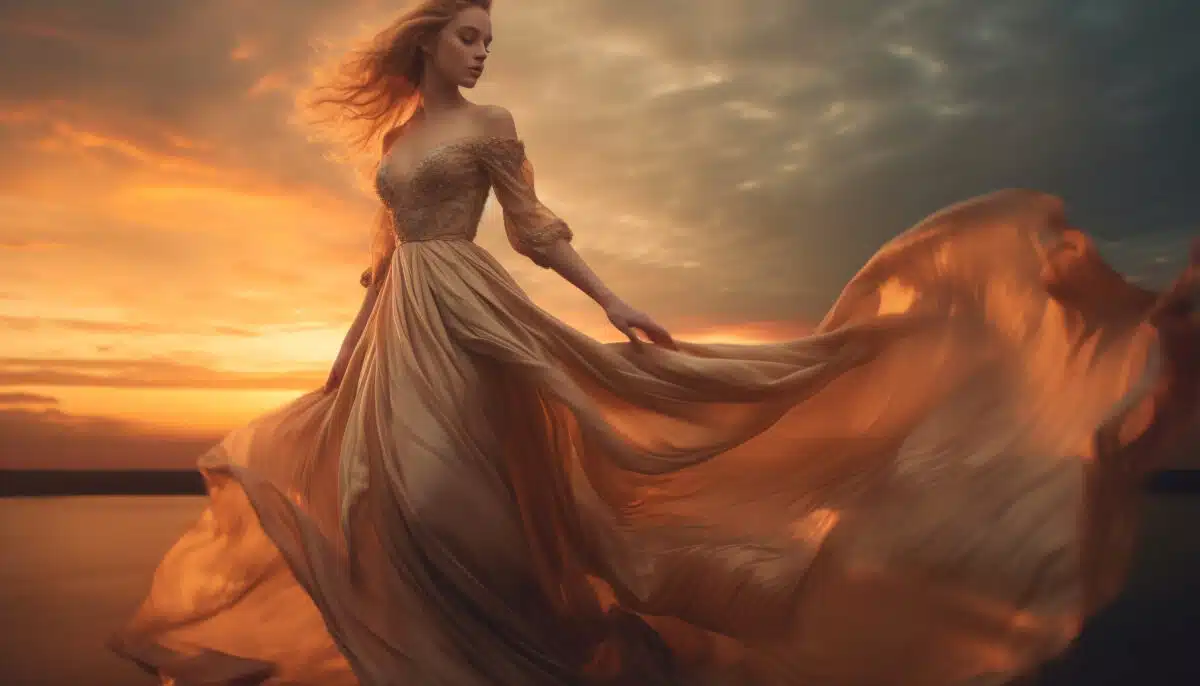
“Twilight Hours” by Sadakichi Hartmann
I
The colors of the rainbow are fading in the silent
and distant West, and the heartache of
twilight trembles within my aching breast.
For the light or my love has faded like sunbeams
in the West, and the color of twilight will
tremble forever in my breast.
II
I think of thy kindness often, when lonesome I feel
and cold, I have not forgotten our childhood,
nor your loving words or old.
And still my sweetest songs or life are floating
in dreams to thee, like whisperings at eventide,
across a clouded sea.
III
We two are sitting in the bark, and listen to the
wavelets ‘play, the shore is melting in the
dark, day’s echoes silently decay.
On life , with all thy hopes so fair, wilt thou
too float away, like visions rising in the
air that greet the parting day!
IV
She stands amidst the roses , and tears dart from her
aye that like the fragrant roses her soul
must fade and die.
He stares at the twilight ocean on the shore of a
foreign land, a faded rose is trembling
within his sort white hand.
V
The rushes whisper sortly, the sounds or silence wake,
large flowers like sad remembrance float
on the dark green lake.
Were life but like the waters, so bright and calm
and deep, and love like floating flowers
that on the surface meat .
VI
The naked trees of autumn grope shivering through
twilight’s gloom, athwart the whispering branches
its dying embers loom.
I dream of life’s defoliation, as I watch with
silent dread, lear after lear departing, like
hopes long withered and dead.
VII
In haunting hours of twilight dreams restless the
turbulent sea, and heaves her white wanton
bosom in endless mystery.
Dream on, dream on, titanic queen, beloved sea, at
thy wanton breast, I would find rest
in endless mystery.
“The Spring, My Dear” by William Ernest Henley
The spring, my dear,
Is no longer spring.
Does the blackbird sing
What he sang last year?
Are the skies the old
Immemorial blue?
Or am I, or are you,
Grown cold?
Though life be change,
It is hard to bear
When the old sweet air
Sounds forced and strange.
To be out of tune,
Plain You and I . . .
It were better to die,
And soon!
“Come to Me, Dearest” by Joseph Brenan
Come to me, dearest, I ’m lonely without thee,
Daytime and night-time, I ’m thinking about thee;
Night-time and daytime, in dreams I behold thee;
Unwelcome the waking which ceases to fold thee.
Come to me, darling, my sorrows to lighten,
Come in thy beauty to bless and to brighten;
Come in thy womanhood, meekly and lowly,
Come in thy lovingness, queenly and holy.
Swallows will flit round the desolate ruin,
Telling of spring and its joyous renewing;
And thoughts of thy love, and its manifold treasure,
Are circling my heart with a promise of pleasure.
O Spring of my spirit, O May of my bosom,
Shine out on my soul, till it bourgeon and blossom;
The waste of my life has a rose-root within it,
And thy fondness alone to the sunshine can win it.
Figure that moves like a song through the even;
Features lit up by a reflex of heaven;
Eyes like the skies of poor Erin, our mother,
Where shadow and sunshine are chasing each other;
Smiles coming seldom, but childlike and simple,
Planting in each rosy cheek a sweet dimple;—
O, thanks to the Saviour, that even thy seeming
Is left to the exile to brighten his dreaming.
You have been glad when you knew I was gladdened;
Dear, are you sad now to hear I am saddened?
Our hearts ever answer in tune and in time, love,
As octave to octave, and rhyme unto rhyme, love:
I cannot weep but your tears will be flowing,
You cannot smile but my cheek will be glowing;
I would not die without you at my side, love,
You will not linger when I shall have died, love.
Come to me, dear, ere I die of my sorrow,
Rise on my gloom like the sun of to-morrow;
Strong, swift, and fond as the words which I speak, love,
With a song on your lip and a smile on your cheek, love.
Come, for my heart in your absence is weary,—
Haste, for my spirit is sickened and dreary,—
Come to the arms which alone should caress thee,
Come to the heart that is throbbing to press thee!
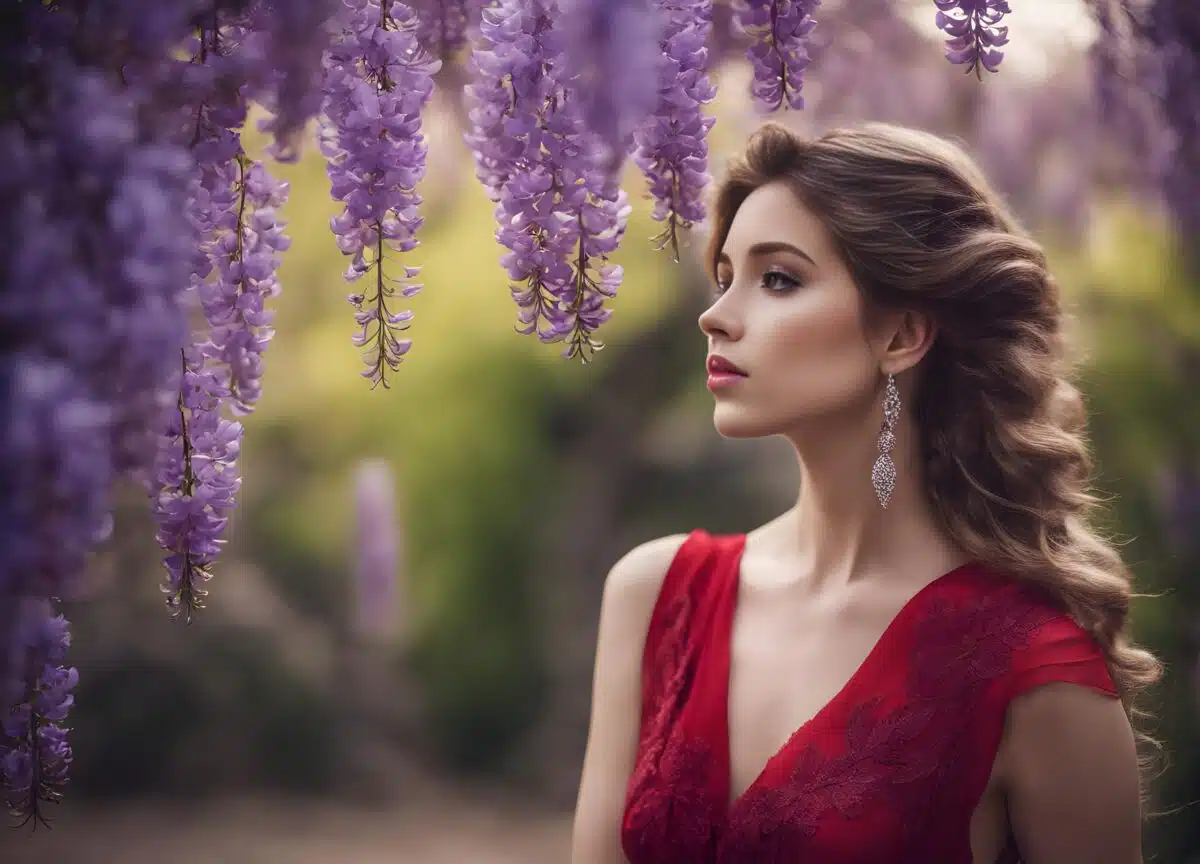
“Coldness In Love” by D. H. Lawrence
And you remember, in the afternoon
The sea and the sky went grey, as if there had sunk
A flocculent dust on the floor of the world: the festoon
Of the sky sagged dusty as spider cloth,
And coldness clogged the sea, till it ceased to croon.
A dank, sickening scent came up from the grime
Of weed that blackened the shore, so that I recoiled
Feeling the raw cold dun me: and all the time
You leapt about on the slippery rocks, and threw
The words that rang with a brassy, shallow chime.
And all day long that raw and ancient cold
Deadened me through, till the grey downs darkened to sleep.
Then I longed for you with your mantle of love to fold
Me over, and drive from out of my body the deep
Cold that had sunk to my soul, and there kept hold.
But still to me all evening long you were cold,
And I was numb with a bitter, deathly ache;
Till old days drew me back into their fold,
And dim sheep crowded me warm with companionship,
And old ghosts clustered me close, and sleep was cajoled.
I slept till dawn at the window blew in like dust,
Like the linty, raw-cold dust disturbed from the floor
Of a disused room: a grey pale light like must
That settled upon my face and hands till it seemed
To flourish there, as pale mould blooms on a crust.
Then I rose in fear, needing you fearfully,xii
For I thought you were warm as a sudden jet of blood.
I thought I could plunge in your spurting hotness, and be
Clean of the cold and the must.—With my hand on the latch
I heard you in your sleep speak strangely to me.
And I dared not enter, feeling suddenly dismayed.
So I went and washed my deadened flesh in the sea
And came back tingling clean, but worn and frayed
With cold, like the shell of the moon: and strange it seems
That my love has dawned in rose again, like the love of a maid.
“What Shall We Do?” by Ella Wheeler Wilcox
Here now forevermore our lives must part.
My path leads there, and yours another way.
What shall we do with this fond love, dear heart?
It grows a heavier burden day by day.
Hide it? In all earth’s caverns, void and vast,
There is not room enough to hide it, dear;
Not even the mighty storehouse of the past
Could cover it from our own eyes, I fear.
Drown it? Why, were the contents of each ocean
Merged into one great sea, too shallow then
Would be its waters to sink this emotion
So deep it could not rise to life again.
Burn it? In all the furnace flames below,
It would not in a thousand years expire.
Nay! it would thrive, exult, expand, and grow,
For from its very birth it fed on fire.
Starve it? Yes, yes, that is the only way.
Give it no food, of glance, or word, or sigh;
No memories, even, of any bygone day;
No crumbs of vain regrets—so let it die.
“Fare The Well, Love” by George Pope Morris
Fare thee well, love!–We must sever!
Nor for years, love; but for ever!
We must meet no more–or only
Meet as strangers–sad and lonely.
Fare thee well!
Fare thee well, love!–How I languish
For the cause of all my anguish!
None have ever met and parted
So forlorn and broken-hearted.
Fare thee well!
Fare thee well, love–Till I perish
All my truth for thee I’ll cherish;
And, when thou my requiem hearest,
Know till death I loved thee, dearest.
Fare thee well!
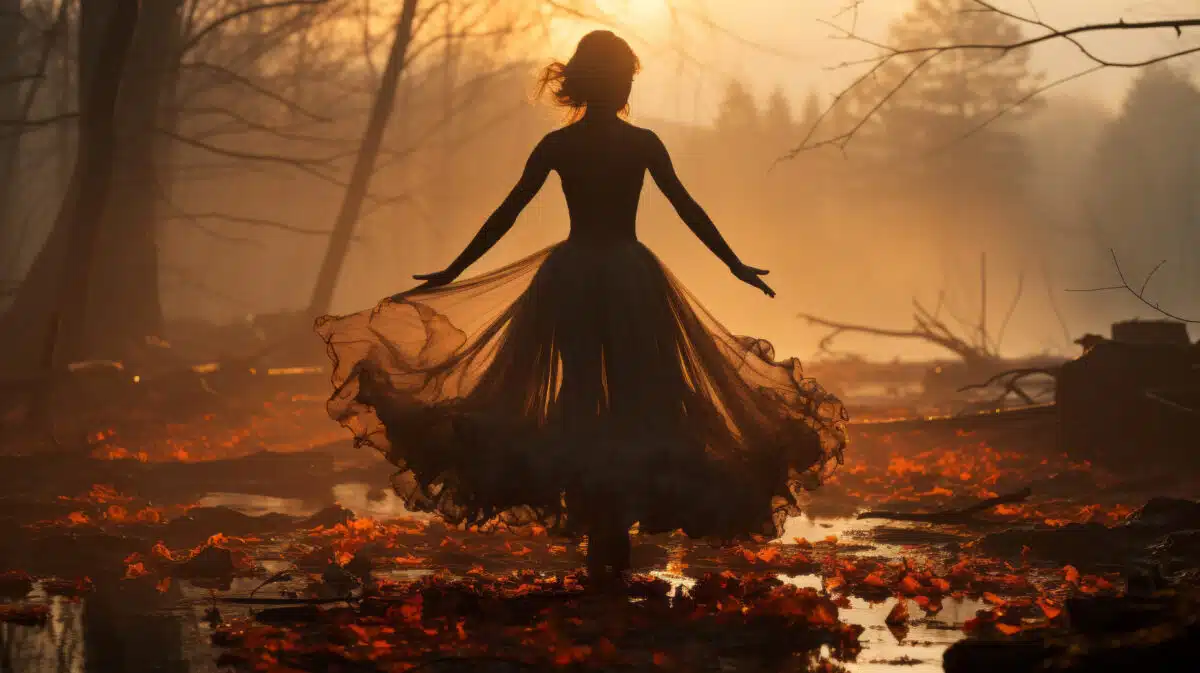
“Conclusion” by Madison Julius Cawein
The songs Love sang to us are dead:
Yet shall he sing to us again,
When the dull days are wrapped in lead,
And the red woodland drips with rain.
The lily of our love is gone,
That graced our spring with golden scent:
Now in the garden low upon
The wind-stripped way its stalk is bent.
Our rose of dreams is passed away,
That lit our summer with sweet fire:
The storm beats bare each thorny spray,
And its dead leaves are trod in mire.
The songs Love sang to us are dead:
Yet shall he sing to us again,
When the dull days are wrapped in lead,
And the red woodland drips with rain.
The marigold of memory
Shall fill our autumn then with glow:
Haply its bitterness will be
Sweeter for love of long-ago.
The cypress of forgetfulness
Shall haunt our winter with its hue:
Its apathy to us not less
Dear for the dreams love’s summer knew.
“The Lost One” by John Clare
I seek her in the shady grove,
And by the silent stream;
I seek her where my fancies rove,
In many a happy dream;
I seek her where I find her not,
In Spring and Summer weather:
My thoughts paint many a happy spot,
But we ne’er meet together.
The trees and bushes speak my choice,
And in the Summer shower
I often hear her pleasant voice,
In many a silent hour:
I see her in the Summer brook,
In blossoms sweet and fair;
In every pleasant place I look
My fancy paints her there.
The wind blows through the forest trees,
And cheers the pleasant day;
There her sweet voice is sure to be
To lull my cares away.
The very hedges find a voice,
So does the gurgling rill;
But still the object of my choice
Is lost and absent still.
“Gitanjali 41” by Rabindranath Tagore
Where dost thou stand behind them all, my lover, hiding thyself in the shadows? They push thee and pass thee by on the dusty road, taking thee for naught. I wait here weary hours spreading my offerings for thee, while passers by come and take my flowers, one by one, and my basket is nearly empty.
The morning time is past, and the noon. In the shade of evening my eyes are drowsy with sleep. Men going home glance at me and smile and fill me with shame. I sit like a beggar maid, drawing my skirt over my face, and when they ask me, what it is I want, I drop my eyes and answer them not.
Oh, how, indeed, could I tell them that for thee I wait, and that thou hast promised to come. How could I utter for shame that I keep for my dowry this poverty. Ah, I hug this pride in the secret of my heart.
I sit on the grass and gaze upon the sky and dream of the sudden splendour of thy coming—all the lights ablaze, golden pennons flying over thy car, and they at the roadside standing agape, when they see thee come down from thy seat to raise me from the dust, and set at thy side this ragged beggar girl a-tremble with shame and pride, like a creeper in a summer breeze.
But time glides on and still no sound of the wheels of thy chariot. Many a procession passes by with noise and shouts and glamour of glory. Is it only thou who wouldst stand in the shadow silent behind them all? And only I who would wait and weep and wear out my heart in vain longing?
